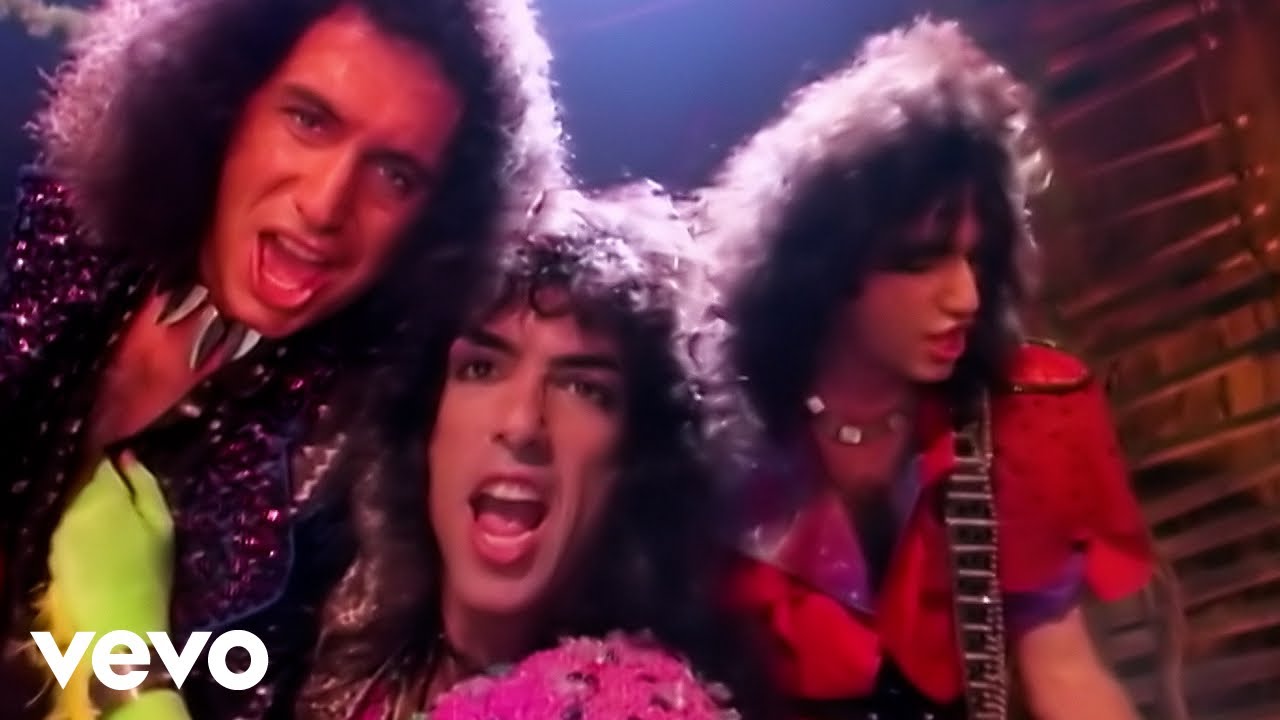By 1985, Kiss had been through three guitarists in three years. Founding member Ace Frehley quit in ’82, giving way to Vinnie Vincent, who was fired in ’84, leading to Mark St. John, who, due to a rare form of reactive arthritis in his hands, gave way to Bruce Kulick, also in ’84. In Kulick, Kiss had found their man.
He had style and chops and wasn’t afraid. He’d played in place of St. John on two songs from 1984’s Animalize – Lonely Is the Hunter and Murder in High-Heels – and toured in support of Animalize after St. John’s arthritis flared up. But Kiss’s next release, 1985’s Asylumwas his first proper Kiss album.
“I really wanted to prove myself worthy of being Kiss’s new guitarist,” he says. “I’d toured for Animalize and was appreciated by Gene (Simmons), Paul (Stanley), and the fans, but could I co-write songs and contribute solos that were memorable?”
Frehley had done just that to perfection. And Vincent, while a malcontent, followed Frehley’s lead. As for St. John… let’s say Kulick couldn’t do any worse.
“My goal was to follow Gene and Paul’s requests when performing on the songs,” Kulick says. “If I could make them happy, that would be a job well done.”
Kulick had undoubtedly learned how to make Simmons and Stanley happy. But then again, after what they’d been through on the guitar front, the fact that Kulick was coherent and trouble-free had to be a breath of fresh air. But wait, there was more! Kulick could seriously play – and he got what it meant to be in Kiss.
“The time spent with them taught me how they worked individually and together,” he says. “Gene and Paul saw some things differently. I needed to keep that in mind – but I always felt confident that my relationship with them was strong and that I could rise to the occasion.”
It also helped that Simmons and Stanley didn’t expect – or want – Kulick to be an Ace Frehley throwback.
“It was about being a competitive guitarist in the Eighties,” Kulick says. “That was a completely different playing style than Ace was known for. Just look at Asylum’s first song, King of the Mountain. Everything from the composition to the guitar solo is very different from the classic Kiss makeup-era albums.”
Meanwhile, the gear Kulick brought to the party was a far cry from Ace’s Les Paul and stock 100-watt Marshall amp.
“One unusual item was a modded Marshall cabinet, I believe, loaded with EV speakers,” Kulick says. “As for guitars, this was pre-ESP, so I was relying on my custom silver Charvel that I’d toured with.”
Kulick used that same Charvel at (New York City’s) Electric Lady Studios when crafting the solo for Asylum’s big hit, Tears Are Falling.
I had three co-writes and plenty of memorable solos. Paul was especially pleased with the music
“The construction of the solo is special,” he says. “All the verses are in a major key, but my solo starts with a minor theme, bringing emotion and attention to it. Then I incorporated other fancy riffs and an exciting, speedy ending as the climax. Naturally, it’s a solo I’m very proud of.”
Kulick also favors Uh! All Night and Who Wants to Be Lonelyrevealing that once he heard the finished product, he knew Asylum was a winner.
“I was thrilled,” he says. “I had three co-writes and plenty of memorable solos. Paul was especially pleased with the music.”

Asylum was popular upon its release in September of ’85 – but not quite as popular as its predecessors, 1983’s Lick It Up and ’84’s Animalize. Nevertheless, it still went Gold.
“I could say all the non-makeup Kiss albums are underrated,” Kulick says. “I never really get into what album is better or worse from my era of Kiss. Each album has its standout songs and performances, and I think Asylum fares very well overall in Kisstory. It wasn’t as big as Animalizebut the three singles and videos are iconic!”
But for Kulick, Asylum’s success wasn’t just measured in sales, but the fact that he’d become a part of Kiss’s legacy.
“Having my face on the cover of the LP was a thrill,” he says. “Asylum represented a real accomplishment for me personally: it was clear that I was the new guitarist for Kiss.
“Every Kiss record represents a certain time in the band’s evolution. It’s up to fans to decide what they love about Asylumbut I am forever grateful to be associated with this album.”
GIPHY App Key not set. Please check settings